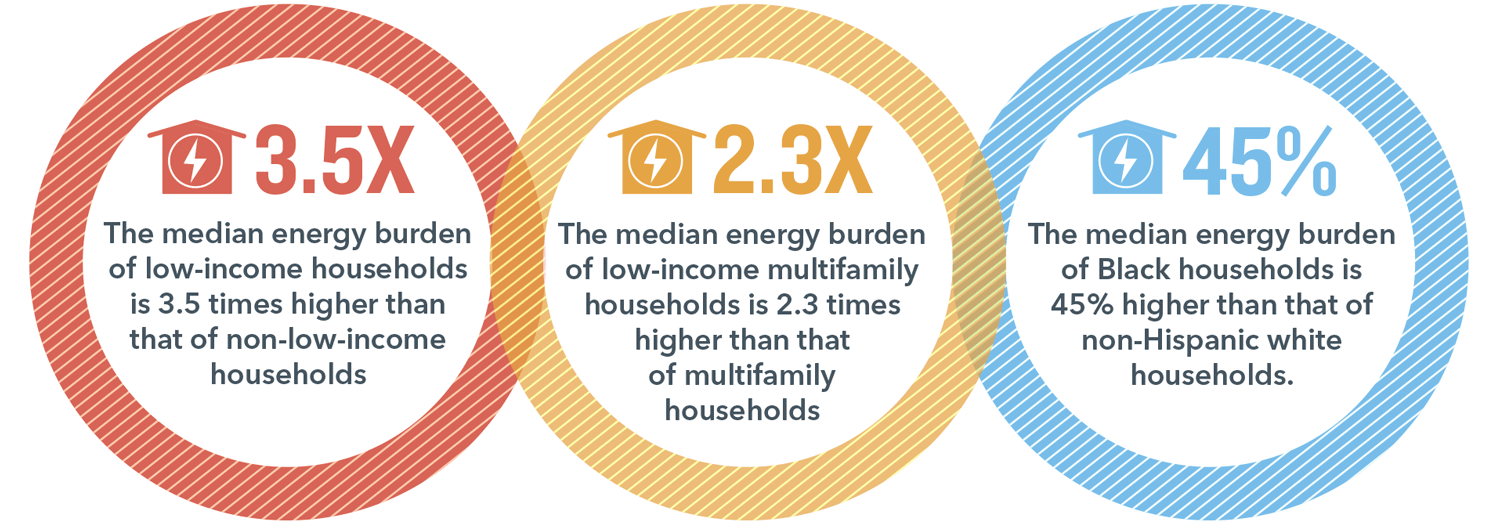Deliver project:
Inclusive Utility Investment
Project Deliver and Clean Energy Works help electric cooperatives that are exploring options to address energy burden, generate economic benefits for member-owners, and create demand for work from businesses that sustain local jobs.
Background
Roanoke electric Cooperative is a distribution cooperative serving northeastern North Carolina. The diversity of their leadership team is representative of its members. The co-op predominantly services persistence property taxes that are burdened with high energy costs.
Opportunity
REC recognized that Pay As You save (PAYS®), a tariffed on-bill financing systems would allow access for underserved member-owners to receive energy efficient upgrades with no upfront cost. The cooperative's investments are covered through a charge on the bill that is less than the energy cost savings. The co-op initially secured $6 million in Treasury-rate financing through the USDA Energy Efficiency & Conservation Loan Program and more recently obtained an additional $6 million for the USDA Rural Energy Savings Program to support the initiative. Inefficient homes add substantial cost to member-owners and the cooperative. In providing a TOBF solution for those needing upgrades, Roanoke Electric is creating value for all the co-op's member-owners.

Action
The co-op's board unanimously approved use of the (PAYS®) system. A very diverse group of business owners are managing and executing at the program on behalf of RTC. Through woman-owned EEtility, Roanoke introduced several initiatives, including targeted outreach to homes with high energy use. Residents are receiving, no upfront cost, upgrades averaging $7,200. The energy efficiency improvements include upgrades to highly efficient HVAC units, retrofits to minimize lost cooling and heating and installations of LED lights, smart strips, aerators, and water heater blankets. Solomon Maryland Heating and Air, a minority-owned HVAC contractor, is doing a large percentage of this work. Currently, Roanoke Electric is expanding its use of the PAYS model to make in-home electric vehicle charging stations available to all members.
Outcome
- Over the lifetime of the measures, the utility will recover both its initial investment and its program costs - plus more than 3% return on its initial investment.
- Electrically heated and cooled homes are seeing an average reduction in electricity use of 23% and a median demand reduction of nearly 26%
- The co-op also realized an average per-home annualized reduction in electricity consumption of 4,228kWh. This translated into a net present value of $3,047 per home or $996,240 for the program over the lifetime of the upgrades.
- Thus, Roanoke Electric's PAYS® investment portfolio is generating substantial economic benefits for the utility even without fully quantifying all benefits streams. * Beneficial electrification is being realized as participants switch from higher cost heating fuel to efficient electric heating pumps.
- Suppliers owned by women and minorities are experiencing substantial revenue growth as major service providers for the program.
Resources
- At the NRECA Annual Meeting in 2020, the Southeast Energy Efficiency Alliance (SEEA) released a Utility Guide that provides the easiest on-ramp for community leaders and utility executives.
- CoBank also worked with SEEA to produce an introductory briefing called Financing the Future Utility Business Models: Tariffed On-Bill Cost Recovery for Grid Edge Investments.
- For more information, contact us.